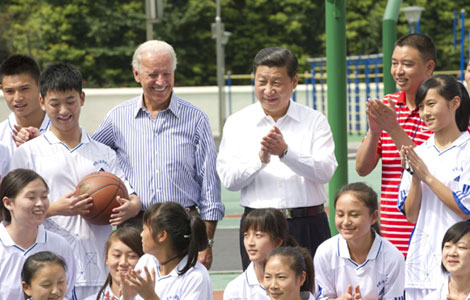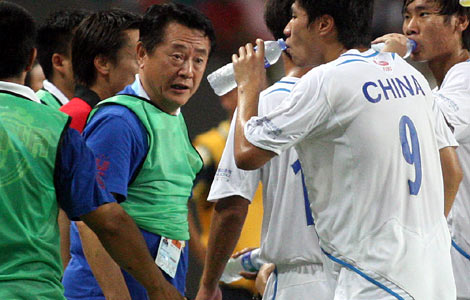Crisis management mechanism will enhance trust
Updated: 2011-08-22 08:16
By Cui Haipei and Zhao Shengnan (China Daily)
|
|||||||||||
BEIJING - China and Japan must work together to promote mutual trust and common security, and should establish a crisis management mechanism to prevent unexpected maritime incidents souring relations, former Chinese state councilor Tang Jiaxuan said on Sunday.
He also said that the two countries should step up political talks and increase military exchanges to prevent any strategic misjudgments.
"Sino-Japanese relations are among the most important for China, so I am delighted to see the reactivation of our relationship after the boat collision near the Diaoyu Islands," Tang said in his keynote speech at the Seventh Beijing-Tokyo Forum.
Ties between the two countries deteriorated and military exchanges were suspended after the collision between a Chinese fishing boat and two Japanese patrol boats in waters off the Diaoyu Islands in the East China Sea in September last year.
Now China and Japan have begun negotiations to create a maritime crisis management mechanism.
Such a mechanism would be a big boost for developing better relations, according to Zhang Tuosheng, a researcher at the China Foundation for International and Strategic Studies.
He said the mechanism needs to be multi-level, involving national leaders, the foreign ministries, the defense ministries and think tanks in both countries, and should focus on crisis prevention more than conflict resolution.
Zhang said he is optimistic about future relations, as the two nations have moved on since 2005 when relations were at their worst and both governments made strategic misjudgments.
Chen Jian, former Chinese ambassador to Japan, said during the security dialogue at the forum that much of the mistrust between the two countries is caused because China is always a simulated enemy in Japan's national strategy.
"Any efforts to improve relations will be fruitless if one side takes the other as a strategic competitor or a simulated enemy. We have more mutual interests than we have disputes over the Diaoyu Islands and the demarcation of the East China Sea," he said.
Defense is a sensitive part of Sino-Japanese ties, said Ishiba Shigeru, Japan's former defense chief and now chairman of the policy council of the opposition Liberal Democratic Party. He said military exchanges could help deepen mutual understanding.
He also added that Japan was not worried about the launch of China's first aircraft carrier.
"Only the United States has the capability to ensure the efficient operation of its 11 aircraft carriers, and China's Varyag needs a lot of naval vessels to defend it, so China still has a long way to go," he said.
Gen Nakatani, a member of the house of Japanese representatives, said that military exchanges between China and Japan are still limited and the two countries should increase exchanges at the intermediate level to improve communication, such as sending officers to study in the other country, holding joint military exercises and sending observers to military exercises.
The Beijing-Tokyo Forum, established in 2005, is an annual international symposium aimed at providing a non-governmental exchange platform and improving Sino-Japanese ties through high-level dialogues.
Hot Topics
Anti-Gay, Giant Panda, Subway, High Speed Train, Coal Mine, High Temperature, Rainstorm, Sino-US, Oil Spill, Zhu Min
Editor's Picks

|

|

|

|

|

|






